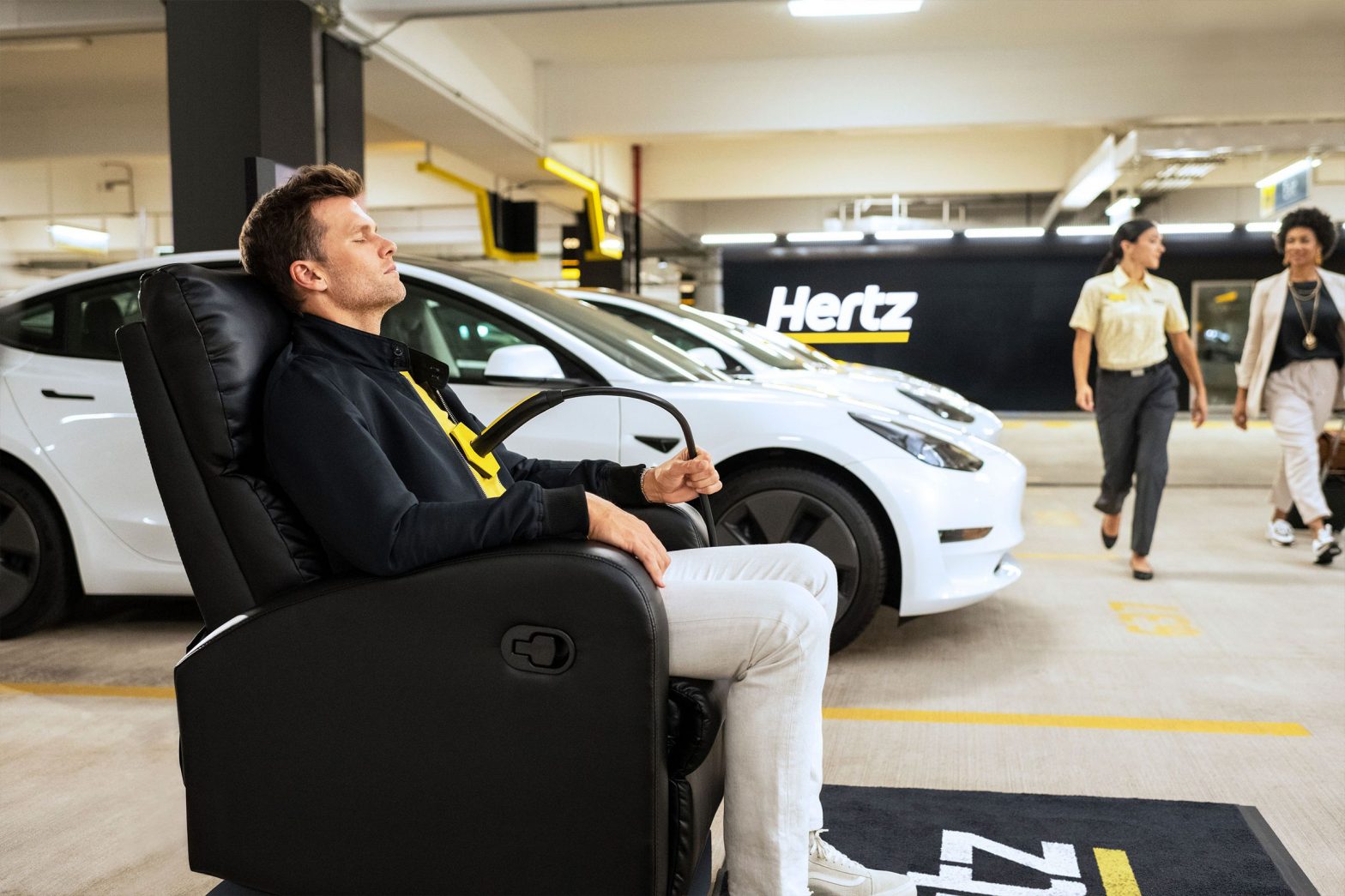/
To balance ‘a disproportionate number of lower margin rentals and reduce damage expense associated with EVs,’ Hertz’s global electric vehicle fleet will shrink by one-third.
Share this story
:format(webp)/cdn.vox-cdn.com/uploads/chorus_asset/file/25219179/ElectricVehicle_1634924028979_HR.jpg)
Hertz went from scaling back its electric vehicle ambitions to selling off its actual EVs in the span of three months. The rental car agency said in a regulatory filing today that it will sell 20,000 vehicles, or roughly one-third of its global EV fleet, and use that money to buy gas guzzlers.
The decision was made after Hertz reported higher depreciation and damage than expected to its EVs, amounting to $245 million in costs for the company. Also, Hertz apparently couldn’t find enough customers for the EVs in its fleet, so selling a huge chunk of them will “better balance supply against expected demand of EVs,” the company said. The company had previously set a target for 25 percent of its fleet to be electric by the end of 2024.
All of which is to say: if you’re in the market for a used EV, now would be a really good time to pop over to Hertz’s sales page and start browsing. Tesla Model 3s can be had for as little as $20,000, used Chevy Bolts are going for $21,000, and there’s one BMW i3 that lists for a little less than $17,000. I’m not seeing any Polestar 2s or Ford Mustang Mach-Es, but I’m guessing they’ll start showing up there soon.
:format(webp)/cdn.vox-cdn.com/uploads/chorus_asset/file/25219308/Screen_Shot_2024_01_11_at_11.52.25_AM.png)
It’s quite the turnaround considering where things were just a few months ago. Hertz envisioned itself as the ultimate EV broker, doling out battery-powered vehicles to business travelers, ridehail drivers, and tech newbies in an ambitious plan to prime the pump for the EV revolution. The company inked agreements with Tesla and Polestar to buy nearly 200,000 EVs. Tesla’s valuation topped $1 trillion for the first time on the news.
But now, demand is softening, and new EV owners are running into challenges around charging and upkeep. EVs are still making huge sales gains, but the slower growth is causing companies of all stripes to tap the brakes on their EV investments.
Hertz’s problem is a bit unique. Of the 100,000 Teslas acquired by Hertz, half were to be allocated to Uber drivers as part of a deal with the ridehail company. And while drivers said they loved the Teslas, they also tend to drive their vehicles into the ground. This higher rate of utilization can lead to a lot of damage — certainly more than Hertz was anticipating.
